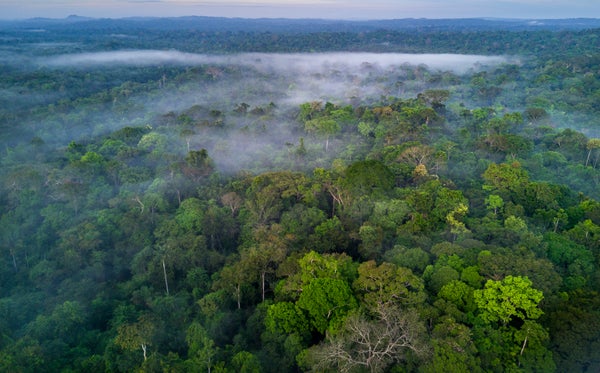CLIMATEWIRE | More than a third of the world’s tree species are at risk of extinction, according to findings by the International Union for Conservation of Nature.
The group said that its first global assessment of trees determined that 38 percent of species are at risk of extinction.
“This comprehensive assessment presents the first global picture of the conservation status of trees, which enables us to make better informed conservation decisions and take action to protect trees where it is urgently needed,” said Malin Rivers, the global tree assessment lead at Botanic Gardens Conservation International.
On supporting science journalism
If you're enjoying this article, consider supporting our award-winning journalism by subscribing. By purchasing a subscription you are helping to ensure the future of impactful stories about the discoveries and ideas shaping our world today.
BGCI coordinated with the IUCN in an effort that involved more than 100 partners and 1,000 tree experts. The IUCN maintains its Red List of Threatened Species — the animals, fungus and plant species across the globe at risk of extinction. The group is an international mix of government and civil organizations looking to preserve wildlife and advance sustainable advancements.
The experts examined 47,282 species of trees, determining that 16,425 — or 34 percent — are threatened, categorized on the Red List as critically endangered, endangered or vulnerable.
The group raised its estimate of how many tree species are imperiled to 38 percent to account for the tree species that they weren't able to survey.
“There are some species that are super-restricted so there’s not very many of them, but there’s also species that are really widespread that are also threatened like Fraser fir in the U.S.,” said Emily Beech, head of conservation at BGCI.
Island trees face the largest threat due to elevated risks such as deforestation, invasive species and extreme weather.
In South America, where there are more tree species than anywhere else in the world, more than 3,000 of 13,668 tree species are at risk of extinction because of crop farming and livestock ranching. The IUCN says that their assessments have aided local and national government planning to save seven species of magnolia trees in Colombia.
The IUCN released its findings in Cali, Colombia, where the United Nations' COP 16 biodiversity summit is now in its second week.
The groups involved in the tree assessments called for global actions to protect and restore trees and their habitats, saying seed banks and botanic garden collections are critical to prevent extinctions.
“Now that we have the data, we are sort of obligated to act,” said Beech.
This story first appeared in E&E News PM.
Reprinted from E&E News with permission from POLITICO, LLC. Copyright 2024. E&E News provides essential news for energy and environment professionals.
